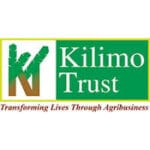AboutShirika la Ukaguzi na Usimamizi wa Vyama vya Ushirika (COASCO)
Before establishment of COASCO, the cooperative societies were being audited by the then Audit and Supervision Fund (ASF), a fund that was under the Prime Ministers Office since 1965.
The Co-operative Audit and Supervision Corporation was established in 1982 by an Act of Parliament No. 15 of 1982 to be the sole public corporation that provided Audit, Supervision and Consultancy services to the cooperatives in Tanzania Mainland. During its establishment, COASCO took over all the assets and liabilities that were owned by ASF including employees.
The Act was amended in April 2005 and assented by the President of The United Republic of Tanzania on 6th June, 2005 to empower the corporation to provide Audit, Supervision, Research, Consultancy and Other related services to Cooperatives as well as to non-Cooperative entities in Tanzania
Vision Statement
“To become a unique centre of excellence for provision of Cooperative audit and cooperative consultancy services in East and Central Africa”
Mission Statement
“To continually being entrusted in delivering quality audit, consultancy and enhance corporate governance to the Cooperative”
General Objectives of the Corporation
The overall strategic objective of the Corporation is to transform the corporation into a professionally competent entity that provides auditing and consultancy services commercially to the cooperative movement and related entities in the associative economy.
Specific Objectives It is recommended that the Corporation should always direct itself on the following broad strategic goals:
(i) To transform the Corporation into a professionally competent Audit, Research and Consulting Organization that provides audit, supervision, research and consultancy services commercially to the clients of the Corporation in Tanzania.
(ii) To address Audit function in order to make more positive impact on the Co-operative Movement in Tanzania.
(iii) To enhance the quality of the Corporation’s Supervisory role by empowering the members to take a leading role in the management of their own societies’ affairs.
(iv) To enhance sustainability through improved internal revenue generation capacity in a cost effective way.
(v) To improve employees’ social welfare, physical infrastructure and participation in decision making.











